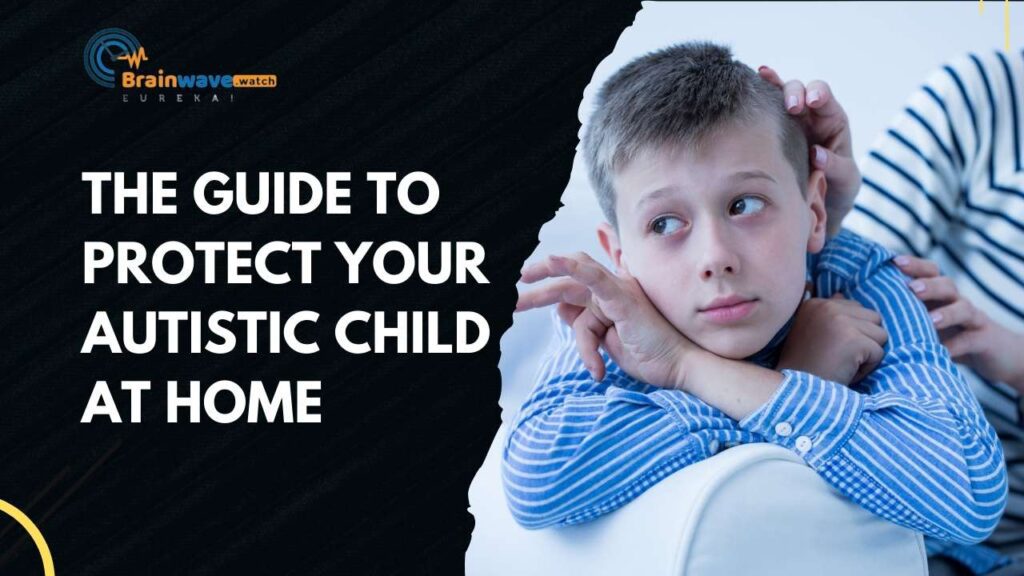For many people, the word ‘autism’ conjures up images of children who are withdrawn and don’t interact with others. However, autism is a spectrum disorder that affects people of all ages and abilities. And while some autistic people may have challenges with social interaction, others may be quite outgoing.
One common challenge for autistic people is sensory processing issues. This means that they may have difficulty processing and interpreting information from their senses, which can lead to difficulty in everyday tasks like brushing their teeth or getting dressed.
Sensory issues and autism are often connected because autistic people may be more sensitive to certain stimuli than neurotypical people. For example, a child with autism may cry when someone tries to cut their hair because the sound of the scissors is too loud or overwhelming. Or a person with autism may avoid eating certain foods because they don’t like the way they smell or taste.
There are a variety of ways to help those with sensory issues and autism. Occupational therapists can work with autistic people to help them cope with sensory overload and learn how to respond in different situations. And there are also many products available that can help reduce sensory stimulation, such as noise-canceling headphones or fidget toys.
If you or someone you know has sensory issues or autism, know that there is help available. With the right support, many people with these challenges can live fulfilling and successful lives.
What are Sensory Issues?
Sensory issues are difficulties with processing information from the senses. This can include being oversensitive or under-sensitive to certain stimuli. For example, people with autism may be oversensitive to loud noises or bright lights, or they may be under-sensitive to pain.
Some people with autism have difficulty filtering out background information and may become overloaded by too many stimuli. This can lead to a feeling of being overwhelmed and can cause a person to shut down or withdraw from the situation.
Sensory issues can also make it difficult for people with autism to communicate effectively. For example, someone who is oversensitive to sound may have difficulty understanding speech, or someone who is undersensitive to touch may have difficulty understanding nonverbal cues such as body language.
Sensory issues can vary widely from person to person, and they can change over time. Some people with autism only have mild sensory issues, while others may have more severe difficulties that impact their daily lives.
Read also: How to Create a Sensory Room for Autistic Kids
How are sensory issues and autism connected?
There is a strong connection between sensory issues and autism. Many people with autism have difficulty processing information from their senses, which can lead to challenges with behavior, social interaction, and communication.
There are several theories about why sensory issues and autism are so closely connected. One theory is that people with autism have a heightened sensitivity to stimuli, due to differences in the way their brains process information. This can make everyday sights, sounds, and smells overwhelming, and can lead to self-stimulatory behaviors like stimming (repetitive movements or vocalizations) as a way of coping.
Another theory is that people with autism have difficulty filtering out irrelevant information, leading to an overstimulated nervous system. This can again lead to challenges with behavior, social interaction, and communication. Sensory issues can also be a side effect of certain medications used to treat autism.
For example, antipsychotic medications can cause drowsiness, increased appetite, and weight gain. Stimulant medications used to treat attention deficit hyperactivity disorder (ADHD) can cause side effects like insomnia, anxiety, and appetite suppression.
Whether they’re caused by differences in brain function or medication side effects, sensory issues can make life more difficult for people with autism. Fortunately, there are ways to manage and accommodate Sensory Processing Disorder (SPD). Occupational therapists can help people with SPD develop coping strategies, and many schools have sensory-friendly classrooms equipped with noise-cancelling headphones, fidget toys, and other tools to help students with ASD focus and learn.
Read also: Autism in Teenagers: Daily Challenges And Solutions
What can be done to help those with sensory issues and autism?
There are a few things that can be done to help those with sensory issues and autism:
- Reducing noise and bright lights, and avoiding overwhelming situations
- Providing sensory-rich experiences (i.e. listening to calming music, looking at nature scenes, using aromatherapy)
- Building up slowly when introducing new activities or situations
There are a few things that can be done to help those with sensory issues and autism. The first is to make sure that the environment is as sensory-friendly as possible. This means keeping noise and light levels to a minimum, and ensuring that there are no sudden or loud noises. It also means avoiding strong smells and clutter.
Another thing that can be done is to provide the person with a way to escape from sensory overload. This could be a quiet room where they can go to get away from the noise and bustle of everyday life. It is also important to have someone who understands the condition and can offer support and advice when needed.
Finally, it is important to remember that everyone with autism is different, and what works for one person may not work for another. It is important to tailor any interventions to the individual needs of the person with autism.
Conclusion
There is a clear connection between autism and sensory processing issues. Sensory processing issues are more common in autistic people, and they can severely impact their quality of life. While there is no cure for autism, early diagnosis and intervention can make a big difference in managing symptoms and improving quality of life. If you think your child may be autistic, talk to your doctor.







